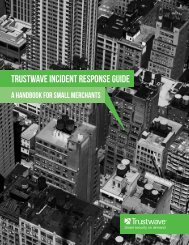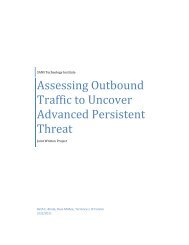gT4rH
gT4rH
gT4rH
Create successful ePaper yourself
Turn your PDF publications into a flip-book with our unique Google optimized e-Paper software.
monitored or even directly controlled by the regime. The logic is very simple – if people<br />
are easier to control if they are ignorant of other possibilities, they have nothing else to<br />
aspire to. Africans across the economic spectrum are being introduced to the internet<br />
even on dumb phones, giving them a gateway to a whole new world of information, new<br />
ideas. That means that they have alternatives they can aspire to other than the status<br />
quo.<br />
2. Expression: Secondly, this is giving citizens a voice. People quickly figure out that they<br />
can leverage internet-based technology and services to air their opinions on all sorts of<br />
things. Governments can expect to find citizens openly asking questions about all<br />
manner of things. At times public discontentment on the state of affairs has it’s roots<br />
online but eventually spills over into the physical world. A recent example of this in<br />
Kenya is when Kenyans on Twitter turned to protests against the government when MPs<br />
proposed outrageous pay packages. Today, a tweet can lead to a revolution<br />
3. Connection: The previous two points are made even more powerful by the capacity to<br />
connect and share on the internet & with internet-enabled technologies. The social web<br />
gives unprecedented scale to the reach of influence and expression.<br />
Scale of expression – Individuals can find an audience for what they have to say, even if<br />
their government is not listening to them and even sympathize with them<br />
Scale of Influence – Individuals through their actions online can influence thousands and<br />
millions from behind their computer screen<br />
How government reacts?<br />
It would appear that governments, even democratic ones are not designed to cope with this<br />
kind of scale of public opinion. Governments today have to deal with the complexity of a<br />
context where flow of information is pervasive, rapid and difficult to control. Even when<br />
governments shut down internet access as we have seen happen in recent times such as<br />
during the Egyptian uprising, there are groups that will go even further. Hacktivism has<br />
become a serious threat to governments around the world. So what can governments do?<br />
How are they reacting?<br />
Maintaining status quo










